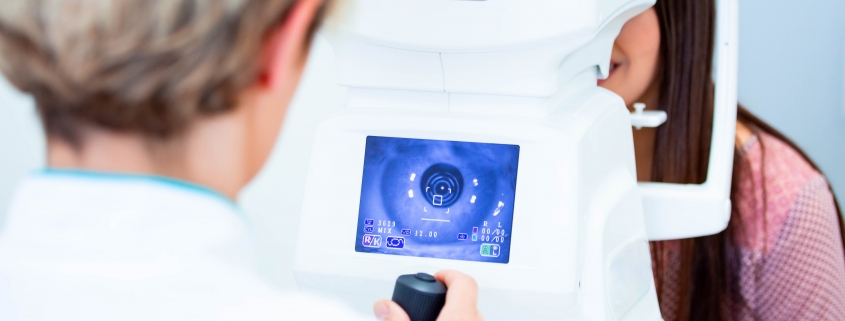You use your eyesight every day to work, play and enjoy your life. Too often, people take their vision for granted until the day when something goes wrong. With just a little attention to your vision, you can protect your eyesight so it serves you for the rest of your life.
1. Get Regular Checkups
Your eye doctor is the best person to ensure your vision is as good as it can be for your age and condition. With regular eye exams, you can be screened for many preventable conditions that can cause serious threats to your vision such as glaucoma and diabetic retinopathy. Consult with your eye doctor for an exam schedule that’s suited for your needs.
2. Be Discerning About Eye Makeup
Eye makeup is absolutely fine to wear, but bad habits can threaten healthy vision. Wear quality eye makeup that won’t flake off into your eyes during the day. Wash off eye makeup before bed to minimize bacteria around the eyes. Be careful when wearing faux lashes and only use adhesives that are recommended for use near the eye.
3. Practice Good Contact Lens Hygiene
Contact lenses should always be worn and cleaned according to the manufacturer’s directions. Avoid wearing daily lenses longer than their recommended usage. Clean your contact lens case regularly and always wash hands before handling your contact lenses.
4. Wear UV-rated Sunglasses
UV rays can be harmful to your eyes over time. When out in bright or glaring sunlight, wear UV-rated sunglasses instead of inexpensive sunglasses that don’t offer UV protection. Get prescription sunglasses if necessary or invest in a pair of clip-ons that fit over your regular eyeglasses.
5. Get Infections Professionally Treated
If you happen to get a cold with an eye infection or have any kind of unusual infection symptoms, get it treated right away. Certain kinds of eye infections only respond to medications. Never trust that an eye infection will go away on its own.
These five tips to protect your vision are recommended for adults of all ages Remember, your eye doctor is always the source of the best information about your eye health. If you have any questions, consult with your professional eye care provider.

